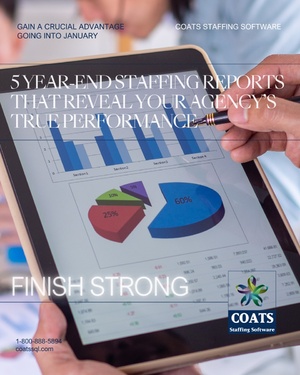The Quality of Searches you work on has the single greatest impact on a desk or firm. If you are taking low quality searches and have a high JO/PL ratio – you are working on a large number of searches but are making only a small percentage of placements on those searches. If you have high quality searches, you will make almost a 1 to 1 ratio of job orders worked to number of placements. It is that simple.
However, it took me totally getting screwed by a client in order for me to the see the light above. I had just finished an engaged search for Huffy Corporation for a Director of HR. It didn’t take long, worked directly with the hiring manger – VP of Legal Counsel – and hired a superstar for the position. Three months later they need a VP of IT. My Director of HR I just placed called me and said he needed me to get on it. I was happy to work with Huffy again. He informed me there had been a change at the VP of Legal Counsel due to a retirement and he had a new boss.
I sent Huffy the service agreement and an invoice for the engagement fee, and got my team on recruiting for the VP of IT. In two short weeks, we had some killer candidates and started the phone interview process. When the phone interviews were about to start, my Director of HR I just had placed called me to explain that the NEW VP of Legal Counsel did not want to do an engaged Search. Since we found the candidates already – I reluctantly agreed to do the search on a contingent basis. To make a long story short – at 9 am the day the face to face interviews were happening, I got another call from my Director of HR. Bad News. The New VP of Legal Counsel didn’t want to pay any recruiting fees at all. I had to call and stop two of the candidates that were on their way to the interview while in transit. How embarrassing and humiliating. I never wanted to work on a contingent search again. Some times it takes getting totally screwed by a client – to make it painful enough to make you make the change to Exclusivity and Money Down.
What makes a Job Order a High-Quality Search?
- You are Exclusive or Exclusive and Retained on the Search
- It is fillable and fillable by YOU
- Money is Competitive
- Sense of Urgency
- Working with the Hiring Manager
- A fair hiring process
- You are Working directly with the Hiring Manager
- The company and position have a strong value proposition
- Culture and Career Path are Strong
Here are how the industry numbers shake out.
Contingent Non-Exclusive:
If you are working a Contingent Search and are NOT exclusive – you will fill the search and industry average of 18% of the time. Meaning you will be wasting 82% of your time and resources. Wouldn’t you rather go bowling?
Contingent Exclusive:
If you are working on a Contingent Search and are Exclusive AND you take a high-quality search, you will fill that search and industry average 50% of the time. That being said, you will only be wasting 50% of your time and resources on searches that don’t net you $$.
Money Down:
If you are working on a Money Down Search, are exclusive AND take a high quality search, you will fill that search close to 90% of the time.
If you go from Non-Exclusive to Exclusive (and take a great search)– you will increase billings by about 3 times.
If you go from Non-Exclusive to Money Down (and take a great quality Search) – you will increase billings by almost 5 times from nonexclusive.
Over the last three years, I have helped over 300 recruiting organizations go from Contingent to Exclusive to Retained! It doesn’t matter who you are or what industry you work in. All individuals – even you – have the opportunity to move their clients up the value change and take CLIENT relationships from Contingent to Mutually Committed.
Join me on Oct 24 2018 12pm- Workshop. Register Here





